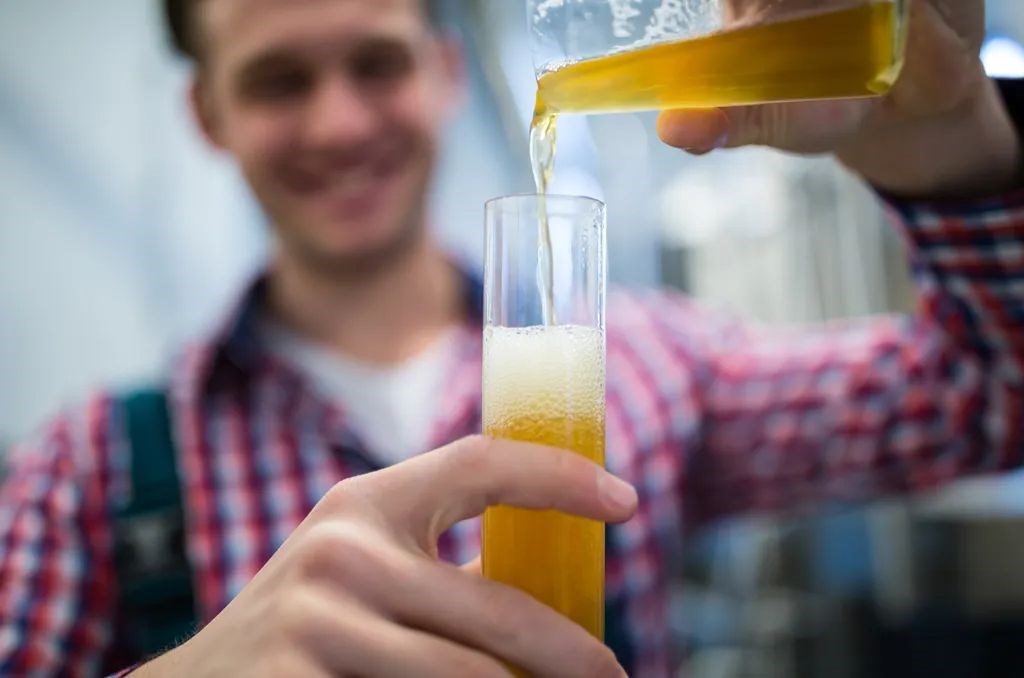What is a Hydrometer?
Published date: 05 August 2023

Hydrometers are essential tools used for measuring the density and specific gravity of liquids across a range of industries, including winemaking, brewing, and the chemical industry. This unassuming yet powerful device aids in various processes, from testing the salinity of seawater to determining the sugar content in fruit juice. In this blog post, we will delve into the world of hydrometers, exploring their functionality and applications.
Understanding hydrometers
A hydrometer is a graduated instrument used to determine the density or specific gravity of a liquid. It operates on the concept of buoyancy, hinging on Archimedes’ principle, which states that an object submerged in a fluid experiences an upward force equal to the weight of the displaced fluid. This buoyant force is influenced by the density of the liquid being measured, allowing the hydrometer to gauge it accurately.
How hydrometers work
A hydrometer consists of a glass or plastic tube with a bulbous end that contains a weight. The weight ensures that the hydrometer remains vertical when placed in a liquid. The graduated scale on the tube is calibrated to specific units, such as Plato or Brix scales, which are commonly used to measure sugar content in beverages. Hydrometers can also be calibrated to specific gravity, a unit-less measure of density relative to the density of water.
To use a hydrometer, the instrument is gently placed into the liquid, and it floats upright due to the buoyant force. The level at which the hydrometer emerges from the liquid indicates the specific gravity or density of the liquid. Lower levels on the scale indicate a lower density or specific gravity, while higher levels signify a higher density.
Applications of hydrometers
Hydrometers find a multitude of applications across various sectors. These applications include, but are not limited to:
- Brewing, winemaking, and distilling industries: Hydrometers are indispensable for monitoring fermentation processes by determining the sugar content in a liquid. This aids in achieving the desired alcohol content and flavour profile.
- Marine sector: In maritime operations, hydrometers are employed to assess the salinity of seawater. This information is crucial for navigation, as different water densities affect buoyancy and vessel stability. Salinity is also a vital indicator for marine biology and oceanography.
- Automotive industry: Hydrometers play a key role in maintaining vehicle battery health. They measure battery acid density, providing insights into the battery’s charge status and overall condition.
- Food and beverage industry: Hydrometers are vital in this sector for assessing sugar content, which impacts the taste and quality of products. From determining the sweetness of syrups to monitoring fruit juice production, hydrometers ensure consistent product characteristics.
- Scientific research and laboratory settings: Hydrometers are essential tools in laboratories for various analyses. They are used to measure the density and specific gravity of a wide range of fluids, aiding in research related to liquid properties and material composition.
These applications highlight the adaptability and significance of hydrometers across different fields. Their ability to provide accurate measurements swiftly and cost-effectively makes them a fundamental asset in various industries.
At Conro Electronics, we’ll show you how to improve product reliability while increasing performance and lowering costs. Our team of technical support specialists will provide your company with dependable global supply, unrivalled efficiency, and superior technical support.
Feel free to contact us on 0208 953 1211 or send us an email to info@conro.com




Comments
There are currently no comments, be the first to comment.